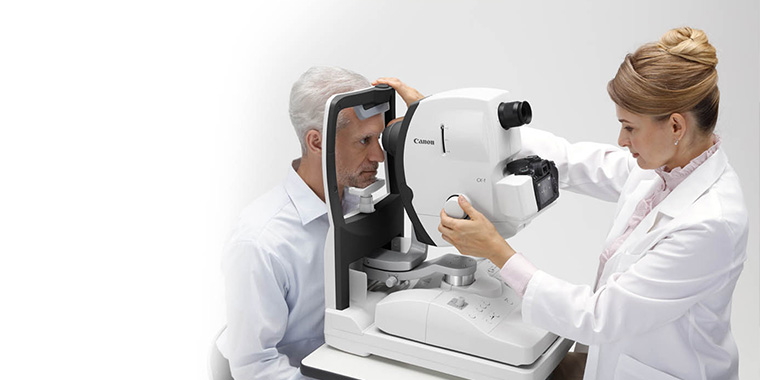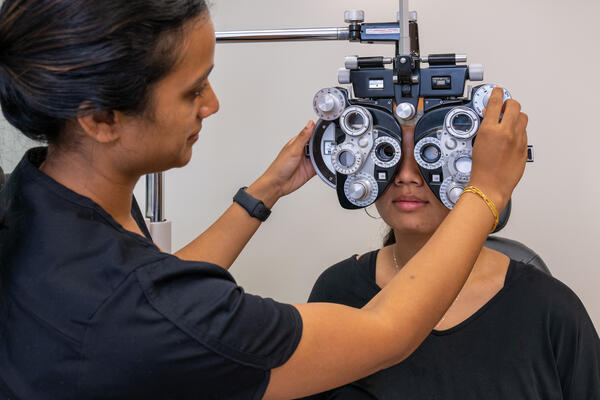Andalusia Eye Center: Innovating Vision Look After Area Wellness
Andalusia Eye Center: Innovating Vision Look After Area Wellness
Blog Article
Is Refractive Surgery Right for You? Aspects to Think About for Better Eyecare
In the realm of eye care, the decision to undergo refractive surgery is a significant one that demands thoughtful factor to consider. From the ins and outs of one's ocular wellness to the details of day-to-day behaviors and individual expectations, each facet holds value in the more comprehensive landscape of refractive surgical procedure candidateship.
Eye Health And Wellness Assessment
When thinking about refractive surgery, a comprehensive eye health analysis is critical to examine the suitability of the procedure for each and every person. neurologist andalusia. This examination includes a series of evaluations and tests conducted by an eye treatment expert to determine the total health and wellness of the eyes, the presence of any type of underlying problems, and the stability of the refractive error
Throughout the assessment, numerous aspects are taken into consideration, such as the person's case history, existing eye prescription, corneal density, pupil dimension, and tear film high quality. These assessments assist to recognize any kind of contraindications to refractive surgery, such as corneal irregularities, cataracts, or untreated eye infections. In addition, the analysis aids to manage client assumptions regarding the prospective results of the surgical procedure based on their distinct eye characteristics.
Ultimately, the eye health and wellness analysis is essential in guaranteeing the security and performance of refractive surgery, as it provides important insights right into the person's eye wellness standing and aids determine the most suitable treatment options for achieving ideal visual results. (eye center andalusia)
Way Of Living Analysis
An extensive lifestyle assessment is indispensable in figuring out the suitability of refractive surgical procedure for an individual's aesthetic modification requirements. Lifestyle aspects such as occupation, leisure activities, and everyday tasks play a critical duty in the decision-making process pertaining to refractive surgical treatment.
Additionally, way of life routines such as sporting activities involvement, outside activities, or even skincare routines can affect the recovery procedure and general success of refractive surgical treatment. By carrying out an extensive lifestyle assessment, eye treatment specialists can customize their suggestions and treatment strategies to fulfill the special requirements of each client, ultimately leading to improved aesthetic results and complete satisfaction.
Expectation Placement

Individuals need to understand that while numerous people attain 20/20 vision or better complying with refractive surgery, some may still call for glasses for certain tasks like analysis or driving at night. Taking care of these expectations assists protect against disappointment and frustration post-surgery, leading to a more positive total experience for the patient.
Danger Evaluation

Variables that may raise the danger of difficulties include age, certain clinical conditions like autoimmune illness, unsteady vision prescription, slim corneas, and impractical person assumptions. Additionally, picking a knowledgeable and competent specialist, adhering to pre and post-operative treatment instructions vigilantly, and check here disclosing any type of appropriate medical history can aid mitigate risks.
To lessen the likelihood of problems, eye doctors perform thorough pre-operative assessments to determine any kind of contraindications to surgical procedure. They also talk about the prospective threats and advantages with people during the examination procedure. By participating in open interaction and shared decision-making, both the ophthalmologist and the individual can collaborate to establish if refractive surgery is the best option based on private danger accounts and wanted end results.
Appointment Relevance
Taking into consideration the critical role of informed decision-making in evaluating dangers and potential problems in refractive surgical treatment, the appointment process holds significant significance in assisting people in the direction of optimal results. During the examination, the ophthalmologist evaluates the person's eye wellness, refractive mistakes, and overall viability for surgical procedure. This preliminary assessment is essential in determining one of the most appropriate like this procedure for each and every individual, taking into consideration factors such as corneal density, pupil dimension, and existing eye problems.
Furthermore, the consultation works as an opportunity for patients to review their expectations, concerns, and any kind of concerns they might have relating to the surgery. Clear interaction between the person and the specialist is important to guarantee reasonable expectations and a detailed understanding of the prospective dangers and advantages included.
In addition, the consultation permits the doctor to discuss the different medical choices offered, their corresponding end results, and the post-operative care required. This comprehensive discussion equips people to make knowledgeable decisions regarding their eye care, leading to better satisfaction and end results post-surgery.
Final Thought
To conclude, individuals considering refractive surgery needs to undergo a comprehensive eye wellness analysis, assess their lifestyle habits, align their expectations with possible outcomes, evaluate the connected risks, and prioritize assessments with eye treatment specialists. These aspects play a crucial function in determining the viability of refractive surgery for each person, making sure optimal results and satisfaction with the procedure.
People considering refractive surgery frequently have high expectations concerning the outcomes, expecting perfect vision without the demand for glasses or contact lenses. While refractive surgical procedure can substantially boost vision and lower reliance on visual aids, it is crucial for patients to understand that results might differ based on private elements such as the degree of refractive error, corneal density, and total eye health and wellness.
By engaging in open interaction and shared decision-making, both the eye doctor and the client can work with each other to determine if refractive surgery is the appropriate choice based on individual threat accounts and preferred results.
Thinking about the crucial duty of notified decision-making in assessing risks and prospective problems in refractive surgical procedure, the examination process holds substantial significance in guiding people towards optimum results. Throughout the assessment, the ophthalmologist examines the client's eye health, refractive errors, and total viability for surgical treatment.
Report this page